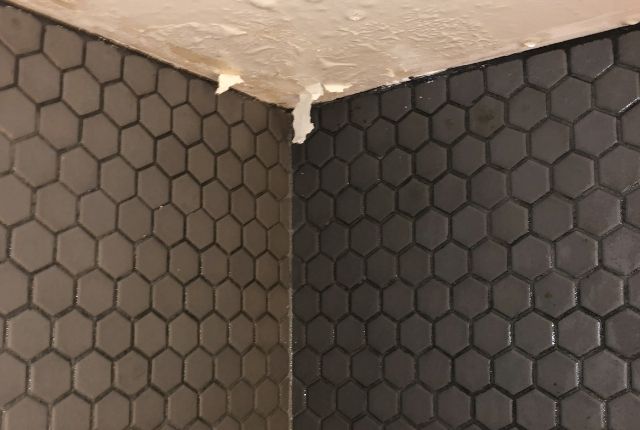HELP! My Shower Is Leaking
A leaking shower is an unpleasant plumbing problem to have. If you’re finding yourself faced with this issue, the thought that’s most likely running through your head right now is why it’s happening.
These common causes can give you a clue.
Causes of Leaking Shower
Poorly Grouted Tiles
If your tiles aren’t grouted very well, they’ll start letting water seep down to the waterproof membrane quicker than it should. A sign that your tiles were grated poorly is excess lippage. You may also find them getting easily cracked, which can contribute further to the leak.
Again, some may be lifted higher than those around them, and the grout may be altogether starting to separate. All these factors can contribute to you experiencing water leaks in the bathroom.
Leaking Pipework Behind the Wall
Or you could have a pipe that’s leaking behind the wall, as this can easily lead to a leaking shower. And it also means that a section of your drywall will need repair. To make sure this is the factor to blame, you can run a pressure test in your bathroom. It will let you see if leaking pipework is really the cause. There are other ways to tell. For one, you can look for standing puddles near that area, especially when you haven’t run the shower in a while. There will also be discolouration around the part of the wall where the pipe might be leaking. The texture on that spot will be noticeably different than the rest of the wall too. Likewise, you can also look for mildew and decay, accompanied by a musty smell.
No Puddle Flange Installed
Your home ought to have a puddle flange under the floor. It’s a strengthener between the drain and a fixture and it helps stop water from travelling under the tiles from waste.
Improperly Installed Waterproofing Membrane
Another possibility is that you may have an improperly installed waterproofing membrane. It will let water in when it otherwise should have drained away. It’s especially necessary if you don’t have a monolith slab, or if your home is in a low set area, with the floor built above the ground.
However, if it doesn’t have one, a consequence you may experience is a leaking shower.
Exposed Edges of Tiles
The edges of your tiles are not waterproof, especially at the ends where they are cut. So if water finds its way to those parts, it’s very likely that you’ll end up with a leak in the bathroom. And that happens because the floor quickly becomes waterlogged.
What to Do When You Have a Leaking Shower
There are some DIY tricks you can try if you’re daring, though they’re generally inadvisable because of the technical nature of fixing a leaking shower. Essentially, they involve detaching the valve or faucet to access the internal components.
From there, you’d have to detach the metal plates, disassemble the valve, then replace all the washers. And after that, you’d have to put all the components back in place.
That won’t work for all the causes, however, and many of them will require specialist knowledge to perform properly, and to avoid causing further damage.
You’re generally better off having a professional do it.
We have over 20 years of experience repairing leaky showers in Queensland. And each repair comes with a free pressure and moisture test, so you can be sure that the issue is properly fixed.
If your shower is leaking and you’re looking to put an end to that problem, get in touch with us now.

